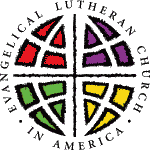Lutheran Differences
Q: Can you tell me the main differences between the ELCA and LCMS?
 A: Since there are so many facets and factions involved with both the Evangelical Lutheran Church in America (ELCA) and The Lutheran Church — Missouri Synod (LCMS), I run the risk of over-generalizing, stereotyping, or ignoring a significant portion of each body unless my comparison approaches book length. While I’ll emphasize official differences, keep in mind that many in the ELCA disagree with some or all of what that body officially professes and the same is true among many members of the LCMS.
A: Since there are so many facets and factions involved with both the Evangelical Lutheran Church in America (ELCA) and The Lutheran Church — Missouri Synod (LCMS), I run the risk of over-generalizing, stereotyping, or ignoring a significant portion of each body unless my comparison approaches book length. While I’ll emphasize official differences, keep in mind that many in the ELCA disagree with some or all of what that body officially professes and the same is true among many members of the LCMS.The easiest dividing line between ELCA and LCMS is that of liberal and conservative. The LCMS teaches Biblical inerrancy and considers the Lutheran Confessions to be true and normative for faith and life. The ELCA allows members to question the veracity of much of the Biblical record and treats the Lutheran Confessions more as historical documents than as vital expressions of current faith and practice.
Because of its understanding of Scripture and Confessions, the LCMS still has an all-male pastorate and officially rejects the ordination of homosexual clergy. Many in the ELCA don’t even view homosexuality as a “problem” while the LCMS, on the basis of Biblical testimony, considers it a major sin. The LCMS is also much more pro-life, anti-abortion than is the ELCA.
The ELCA is “in communion” with many more church bodies than is the LCMS. This means that pastors of the various bodies may exchange pulpits and members may commune at the others’ altars without impediment. In the LCMS, full communion only takes place after doctrinal differences are resolved. With a much more minimal requirement for intercommunion between ELCA and other bodies, its altars are officially open to thousands who officially deny or openly question basic Lutheran teaching on many topics.
 For example, strongly Calvinist Episcopalians who deny the universality of grace, Reformed members of the United Church of Christ who reject the Real Presence of Christ in His Supper, or Methodists who question original sin and the efficacy of infant Baptism all may join their mixed confessions around an ELCA altar. Meanwhile, pastors from these bodies holding and teaching these differing theologies are allowed to preach from ELCA pulpits.
For example, strongly Calvinist Episcopalians who deny the universality of grace, Reformed members of the United Church of Christ who reject the Real Presence of Christ in His Supper, or Methodists who question original sin and the efficacy of infant Baptism all may join their mixed confessions around an ELCA altar. Meanwhile, pastors from these bodies holding and teaching these differing theologies are allowed to preach from ELCA pulpits.Some might consider our polities to be major differences, since the ELCA uses a system of bishops while the LCMS has a more corporate political structure. However, in the long run, the type of government a church has is not nearly so important as is the type of church that is being governed. Ultimately, a church’s government is only as Lutheran and Christian as is the official teaching and practice of that church. Right is right whether done by a bishop or a voters’ assembly and bad theology remains bad whether issued by episcopal fiat or by a misguided majority vote.
As I noted, these are generalities. The LCMS has many who are much more conservative or confessionally-minded than either our current leadership or many of our official positions show us to be. There are others who are generally much more liberal-minded, many of whom are hoping to bring the Missouri Synod into full communion with the ELCA. Meanwhile, the ELCA also has its polar opposites. Some seem bent upon stripping any remaining Lutheran uniqueness from the ELCA, completing its homogenization into generic American Protestantism. Others are trying to reverse perceived excesses, return to Scriptural fidelity, and reestablish a stronger, Bible-based ethos on their church.
I know this answer was not exhaustive. I hope that it at least helped to frame the general points separating the two largest Lutheran bodies in the United States.
Send email to Ask the Pastor.
Walter Snyder is the pastor of Holy Cross Lutheran Church, Emma, Missouri and coauthor of the book What Do Lutherans Believe.
Technorati Tags: ELCA | LCMS

7 Comments:
One nit to pick: you comment that "Because of its understanding of Scripture and the Confessions, the LCMS ... all male pastorate."
This is not because of our "understanding;" it's simply what Scripture clearly *states.* Perhaps a discussion of the ELCA's (and many other denominations') dependence on the *magisterial* use of reason with Scripture - as opposed to the LCMS's ministerial use - would be helpful.
Pastor, a very fair illustration! I was an ELCA member for 30 years before leaving a couple of years ago. One thing that drove me to leave was lack of unity on any topic, including whether or not the Bible was actually God's Word. It became unbearable going to the communion rail not knowing if the person next to you even believed in God.
Fortunately, we are saved by God's Grace, through the suffering of Jesus on the cross, not by our knowledge of or assent to the confessions, nor by our knowledge of who is next to us at the communion table, nor even by our unity. We sin; pastors sin. We receive grace.
There are human problems in every church. A person or denomination may have more Biblical knowledge than another one, but that doesn't save us either.
And we are certainly not saved or get a higher rank in the kingdom or another jewel in our crown by pointing out "errors" in another person's knowledge of scripture. The pharasees pointed out the "errors" of Jesus' interpretation of the scriptures. Who was right?
"And we are certainly not saved or get a higher rank in the kingdom or another jewel in our crown by pointing out 'errors' in another person's knowledge of scripture. The pharasees pointed out the 'errors' of Jesus' interpretation of the scriptures. Who was right?"
We are not saved by noting errors in others' theology. However, the saved certainly are not excused from so doing. Jesus frequently faulted the interpretations of both Pharisees and Sadducees regarding the letter and spirit of the Torah, the Resurrection, and other topics. Both Christ and the writers of the New Testament frequently laud those who can refute errors, make valid doctrinal comparisons, and teach without compromise the full counsel of God.
Dear Anonymous,
Is that your defense of the ELCA? That there are human problems in every church? Is it a "human" problem that women stands shamelessly in front of a congregation? Is it a lack of scriptural knowledge that she stands there? If the ELCA can't get the Bible right, then how can they lead souls to Christ?
You also write that we are certainly not saved or get a higher rank in the kingdom or another jewel in our crown by pointing out "errors" in another person's knowledge of scripture. No, no jewel in our crown. But I know my soul was saved by a good pastor teaching scripture to me. The error I was allowed to believe in the ELCA were putting my faith and soul in danger of disbelief.
I challenge you to come up with a better defense of the ELCA than that!
ELCA has come to the big-tent syndrome that anyone can believe whatever they want, and sinful behavior isn't even sin any longer.
Wasn't the Reformation founded in part, over different understandings of Scripture? Prior to it, Scripture was used to justify clerical celibacy, a belief in the Real Presence in the Eucharist, the veneration of saints, more than two sacraments, Papal authority, and even the earth as being at the center of the universe. Protestants saw things differently. What changed? God's intent, or our understanding of it in the light of reason and enlightenment, also gifts from God?
To say that the meaning of Scripture is written in stone belies the fact that even "conservatives" HAVE come to understand some of it differently, over the centuries. We no longer use Scripture to justify slavery, do we. Yet we could!
Jesus didn't have a Bible. he had knowledge of the Old Testament, and he often contradicted it. The first Christians didn't have Bibles either, but they did have the Church, and who would say that the Church, pre-Bible, was without "authority"? It was the Church which gathered various books together, approved them, and created the Bible as we know it.
Post a Comment
<< Home